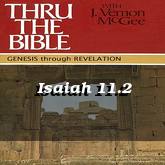"Martha was cumbered about much serving."
—Luke 10:40
Evening Thought
Her fault was not that she served: the condition of a servant well becomes every Christian. "I serve," should be the motto of all the princes of the royal family of heaven. Nor was it her fault that she had "much serving." We cannot do too much. Let us do all that we possibly can; let head, and heart, and hands, be engaged in the Master's service. It was no fault of hers that she was busy preparing a feast for the Master. Happy Martha, to have an opportunity of entertaining so blessed a guest; and happy, too, to have the spirit to throw her whole soul so heartily into the engagement. Her fault was that she grew "cumbered with much serving," so that she forgot him, and only remembered the service. She allowed service to override communion, and so presented one duty stained with the blood of another. We ought to be Martha and Mary in one: we should do much service, and have much communion at the same time. For this we need great grace. It is easier to serve than to commune. Joshua never grew weary in fighting with the Amalekites; but Moses, on the top of the mountain in prayer, needed two helpers to sustain his hands. The more spiritual the exercise, the sooner we tire in it. The choicest fruits are the hardest to rear: the most heavenly graces are the most difficult to cultivate. Beloved, while we do not neglect external things, which are good enough in themselves, we ought also to see to it that we enjoy living, personal fellowship with Jesus. See to it that sitting at the Saviour's feet is not neglected, even though it be under the specious pretext of doing him service. The first thing for our soul's health, the first thing for his glory, and the first thing for our own usefulness, is to keep ourselves in perpetual communion with the Lord Jesus, and to see that the vital spirituality of our religion is maintained over and above everything else in the world.
Ⓒ 1996-2018 Heartlight, Inc. This material may not be reproduced in part or whole for commercial use without written consent. Written by Charles H. Spurgeon.
 View the full article
View the full article
—Luke 10:40
Evening Thought
Her fault was not that she served: the condition of a servant well becomes every Christian. "I serve," should be the motto of all the princes of the royal family of heaven. Nor was it her fault that she had "much serving." We cannot do too much. Let us do all that we possibly can; let head, and heart, and hands, be engaged in the Master's service. It was no fault of hers that she was busy preparing a feast for the Master. Happy Martha, to have an opportunity of entertaining so blessed a guest; and happy, too, to have the spirit to throw her whole soul so heartily into the engagement. Her fault was that she grew "cumbered with much serving," so that she forgot him, and only remembered the service. She allowed service to override communion, and so presented one duty stained with the blood of another. We ought to be Martha and Mary in one: we should do much service, and have much communion at the same time. For this we need great grace. It is easier to serve than to commune. Joshua never grew weary in fighting with the Amalekites; but Moses, on the top of the mountain in prayer, needed two helpers to sustain his hands. The more spiritual the exercise, the sooner we tire in it. The choicest fruits are the hardest to rear: the most heavenly graces are the most difficult to cultivate. Beloved, while we do not neglect external things, which are good enough in themselves, we ought also to see to it that we enjoy living, personal fellowship with Jesus. See to it that sitting at the Saviour's feet is not neglected, even though it be under the specious pretext of doing him service. The first thing for our soul's health, the first thing for his glory, and the first thing for our own usefulness, is to keep ourselves in perpetual communion with the Lord Jesus, and to see that the vital spirituality of our religion is maintained over and above everything else in the world.
Ⓒ 1996-2018 Heartlight, Inc. This material may not be reproduced in part or whole for commercial use without written consent. Written by Charles H. Spurgeon.


 Let's urgently pray for Rivla's marriage. "With God all things are possible" (Matt 19:26). Pray for her husband's heart to turn, bad influences to cease, & restoration. Trust Jesus for a miracle. In Jesus' name!
Let's urgently pray for Rivla's marriage. "With God all things are possible" (Matt 19:26). Pray for her husband's heart to turn, bad influences to cease, & restoration. Trust Jesus for a miracle. In Jesus' name! 
 **Prayer Updates!**
**Prayer Updates!** 
 **Prayer Group!**
**Prayer Group!** 










 Let's also pray for those needing financial miracles and spiritual warfare support.
Let's also pray for those needing financial miracles and spiritual warfare support.


